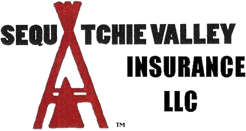- Insurance Services
- Auto, Home & Personal Insurance
- Business Insurance
- Business Interruption Insurance
- Business Owners Package Insurance
- Commercial Auto Insurance
- Commercial Property Insurance
- Commercial Umbrella Insurance
- General Liability Insurance
- Hotel & Motel Hospitality Insurance
- Professional Liability (E&O) Insurance
- Surety Bonds
- Workers' Compensation Insurance
- - View All Business
- Life Insurance
- Group Benefits
- About
- Policy Service
- Contact
Article originally posted on www.insuranceneighbor.com(opens in new tab)

If your employer is acquired, the fate of your 401(k) plan may depend in part on what type of acquisition it is – asset sale or stock purchase.
In an asset sale, the selling company retains responsibility for the 401(k) plan. Employees of the acquired company that stay on after the sale are typically considered new employees of the acquiring company.
If the acquisition is a stock purchase, the acquiring company is purchasing the entity (company), including its benefit plans, from the seller. Usually, employees are treated as employees of the buyer, either directly or indirectly. There are several possible outcomes for your 401(k) in this scenario:
- Your existing 401(k) may be merged into the new company plan.
- Both company plans may be maintained separately.
- Your 401(k) plan may be terminated.
Merger of the Two Plans
This is the most common scenario for 401(k)s when one company acquires another. When the two plans are merged, your existing 401(k) is merged into the new company plan, which may have different employer matching and investment options. You may be locked out of your existing 401(k) for a time, while the merger of the plans is in process.
Two Separately Maintained Plans
Your existing 401(k) plan may continue on the same as before, while the other company continues to run its plan. Acquired company employees continue using their own 401(k) and do not participate in the acquiring company’s plan.
Termination of the Plan
If your 401(k) plan terminates, there are two possible outcomes:
- Everything remains the same, except the plan stops allowing new contributions. You remain vested in the plan, have it serviced in a customary manner, and take distributions at retirement. Employer contributions are fully vested. You are entitled to the matching funds your employer has put in, regardless of plan rules. The only limitation is no new money can go into the plan.
- The plan closes, allows no new contributions, and forces participants to roll over their funds into an IRA or another 401(k) plan. Employer contributions are also fully vested in this case.
What If My Company Is Sold and I No Longer Work There?
If you have left a company that was acquired by another company, you have options similar to current employees except:
- If your 401(k) account balance is less than $5,000, the company may force you out of the plan. In this case, your 401(k) funds will be automatically rolled over into an IRA.
- If you are a terminated plan participant, you can move your money out regardless. You can rollover your account to an IRA or to a new employer’s 401(k). It is not advisable to cash out the account, particularly if you are under the age of 59 ½. The distribution will be subject to income tax, plus a 10% early withdrawal penalty.
If you are uncertain about your 401(k) plan options after a company acquisition, speak with our knowledgeable agent. We can help you navigate the transition in a manner that is in your best interests.
Filed Under: Group Benefits | Tagged With: 401(k)